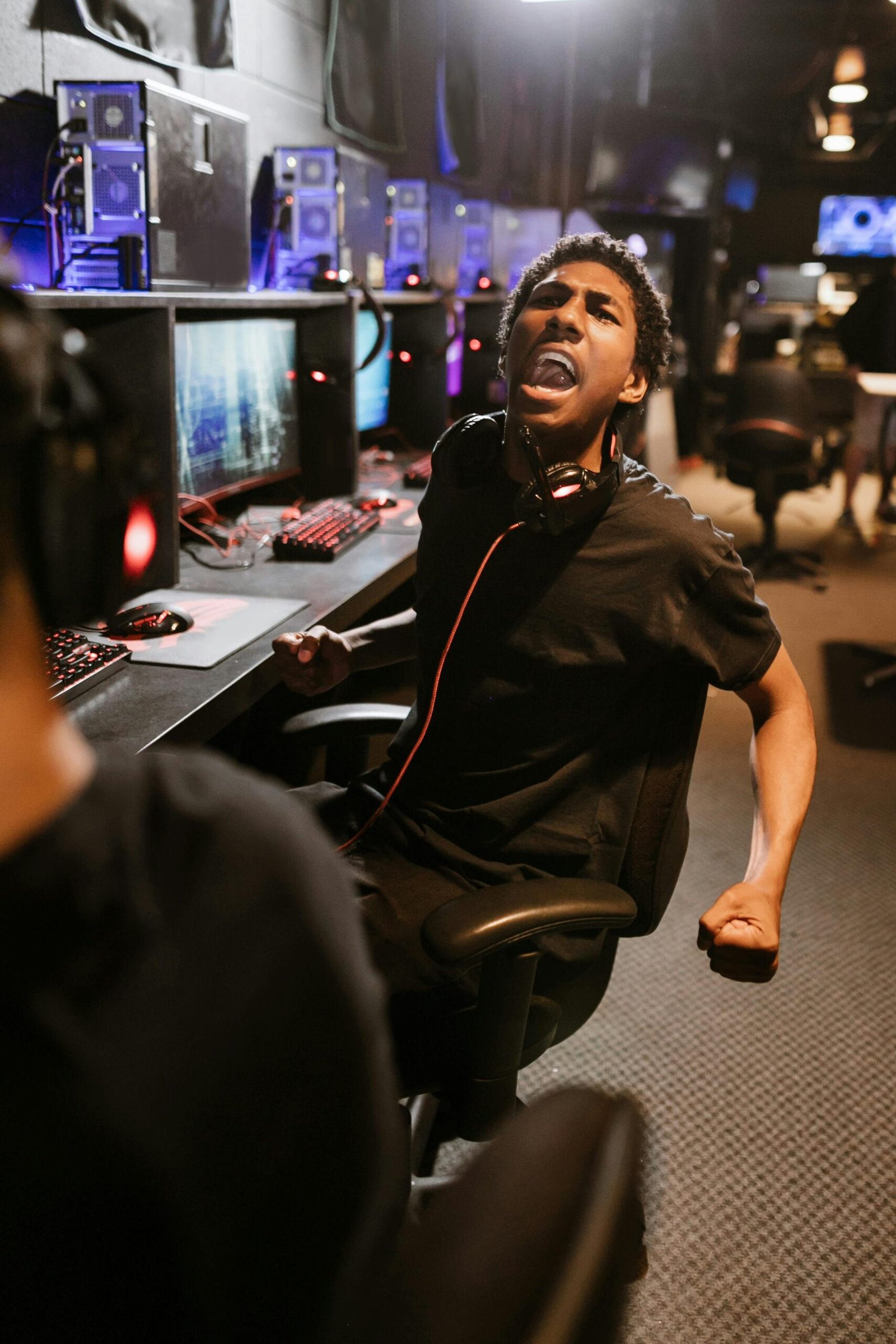How Many Hours the Average Gamer Spends per Week vs. Professional Gamers
The world of gaming has evolved significantly, from being a casual pastime to becoming a professional career for many. Whether it’s competitive esports or streaming gameplay on platforms like Twitch, gaming now offers career paths that demand significant time commitments. But how much time does the average gamer spend playing each week compared to professional gamers? And what are the potential downsides of gaming for extended hours? Let’s explore the data, risks, and solutions.
How Many Hours the Average Gamer Spends Per Week
On average, gamers spend around 8-12 hours per week playing video games, according to various surveys. A 2022 report by Statista indicated that the global average was about 8.5 hours weekly. The time can vary based on region, age, and platform, with younger gamers and console players often spending more time gaming compared to mobile players or older demographics.
How Many Hours Professional Gamers Spend Playing
Professional gamers dedicate a significantly higher number of hours to gaming, often treating it as a full-time job. Esports players and streamers may spend 30-40 hours per week playing, while during peak training or competition periods, the time can reach up to 50-60 hours per week. This includes not just playing games but also practice sessions, strategy planning, and reviewing past performances. In some cases, esports teams will practice 6-8 hours a day, similar to the training regime of professional athletes.
Potential Downsides of Gaming for Long Hours
While gaming offers cognitive benefits, social interaction, and career opportunities, excessive gaming—especially for those clocking long hours—can lead to several downsides:
1. Physical Health Issues
Extended gaming sessions can result in various physical problems, including:
- Eye strain: Prolonged screen exposure can lead to digital eye strain, dryness, and fatigue.
- Poor posture: Sitting for long hours without proper ergonomics may cause back, neck, or shoulder pain, leading to long-term posture issues.
- Carpal tunnel syndrome: Repetitive movements using controllers or keyboards can strain the wrists and hands.
2. Mental Health Concerns
Spending too many hours gaming can contribute to mental health issues such as:
- Gaming addiction: Known as Internet Gaming Disorder, excessive gaming can interfere with daily responsibilities, relationships, and mental well-being. The World Health Organization has even recognized gaming disorder as a behavioral health condition.
- Anxiety and depression: A sedentary lifestyle coupled with the pressures of competition (for pros) or social isolation (for non-pros) may trigger anxiety or depressive symptoms.
3. Sleep Disruption
Late-night gaming or binge sessions can disrupt your sleep cycle, particularly if it becomes a habit. This can result in insomnia, fatigue, or poor cognitive function during the day.
4. Impaired Social Skills
Excessive gaming may lead to social withdrawal or a preference for virtual interactions over real-life relationships. While gaming can provide an online social outlet, it can also reduce face-to-face communication skills.
How to Minimize the Negative Effects of Gaming
While gaming has its downsides when done excessively, there are several ways to mitigate these risks and maintain a healthy balance:
1. Set Time Limits
Establish a gaming schedule and stick to it. Limiting gaming to 1-2 hours per day for casual gamers, and adhering to scheduled breaks for professionals, can prevent burnout and other health issues. Implement techniques like the Pomodoro method (25 minutes gaming, 5-minute break) to ensure you’re not sitting for extended periods.
2. Take Frequent Breaks
Take 15-minute breaks every hour to stretch, hydrate, and rest your eyes. Doing simple stretches, walking around, or practicing breathing exercises can help counteract the physical toll of gaming.
3. Maintain Proper Posture and Ergonomics
Invest in a good-quality ergonomic chair and ensure your gaming setup supports proper posture. Your computer monitor should be at eye level, and your keyboard and mouse should be positioned to keep your wrists straight and elbows bent at a 90-degree angle. Use blue light filtering glasses or enable blue light reduction settings to minimize eye strain.
4. Stay Physically Active
Regular physical exercise is crucial for counteracting the effects of sedentary behavior. Gamers should engage in strength training, cardio, or flexibility exercises at least 3-4 times per week. Consider integrating activities like yoga, swimming, or hiking to promote better physical and mental health.
5. Prioritize Sleep
Maintain a regular sleep schedule and avoid gaming right before bed. The blue light emitted from screens can interfere with your circadian rhythm and reduce sleep quality. Aim for 7-9 hours of sleep each night and establish a wind-down routine that limits screen time in the evening.
6. Balance Gaming with Social and Outdoor Activities
While gaming can be social in an online context, it’s important to engage in face-to-face interactions and spend time with friends and family outside of the virtual world. Scheduling social activities and spending time outdoors will create a balanced lifestyle and help prevent the isolating effects of too much screen time.
Conclusion
Gaming is a popular and immersive hobby for millions around the world, with professional gamers dedicating significantly more hours than the average player. However, spending too much time gaming can lead to various physical and mental health risks. By setting limits, taking regular breaks, maintaining proper posture, and incorporating a balance of physical activity and social interaction, gamers can continue to enjoy their favorite pastime while minimizing the potential downsides.
Gaming can provide numerous benefits—improved hand-eye coordination, cognitive skills, and even social connections—but like anything, moderation is key to avoiding burnout and health issues.
For more articles, click here.










